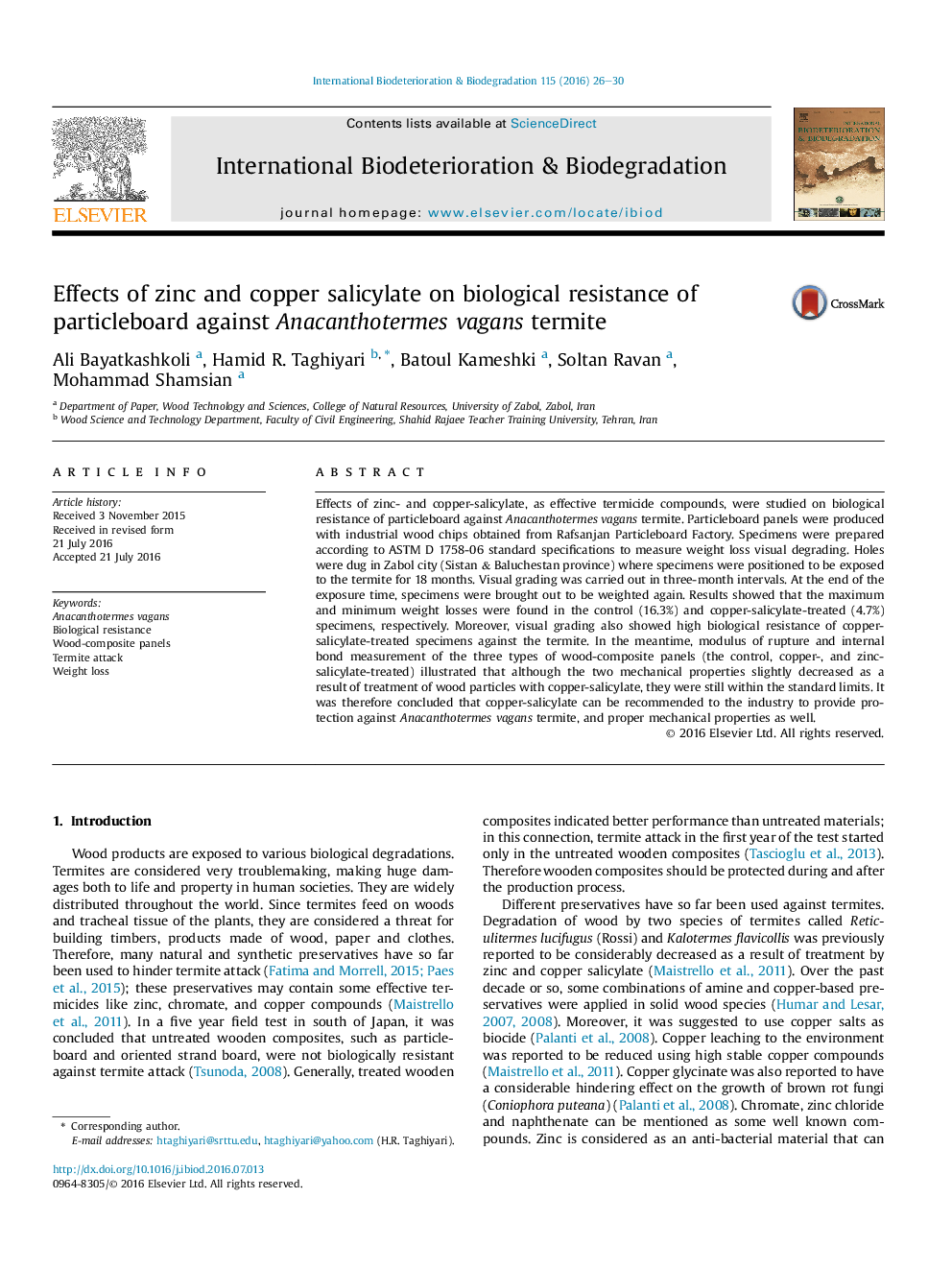| Article ID | Journal | Published Year | Pages | File Type |
|---|---|---|---|---|
| 4364156 | International Biodeterioration & Biodegradation | 2016 | 5 Pages |
•Copper- and zinc-salicylate decrease weight loss and visual degrading in particleboard panels caused by termite attack.•Copper-salicylate is more effective than zinc-salicylate in hindering termite attack to particleboard panels.•Negative effect of copper-salicylate on mechanical properties of particleboard panels is negligible.
Effects of zinc- and copper-salicylate, as effective termicide compounds, were studied on biological resistance of particleboard against Anacanthotermes vagans termite. Particleboard panels were produced with industrial wood chips obtained from Rafsanjan Particleboard Factory. Specimens were prepared according to ASTM D 1758-06 standard specifications to measure weight loss visual degrading. Holes were dug in Zabol city (Sistan & Baluchestan province) where specimens were positioned to be exposed to the termite for 18 months. Visual grading was carried out in three-month intervals. At the end of the exposure time, specimens were brought out to be weighted again. Results showed that the maximum and minimum weight losses were found in the control (16.3%) and copper-salicylate-treated (4.7%) specimens, respectively. Moreover, visual grading also showed high biological resistance of copper-salicylate-treated specimens against the termite. In the meantime, modulus of rupture and internal bond measurement of the three types of wood-composite panels (the control, copper-, and zinc-salicylate-treated) illustrated that although the two mechanical properties slightly decreased as a result of treatment of wood particles with copper-salicylate, they were still within the standard limits. It was therefore concluded that copper-salicylate can be recommended to the industry to provide protection against Anacanthotermes vagans termite, and proper mechanical properties as well.
